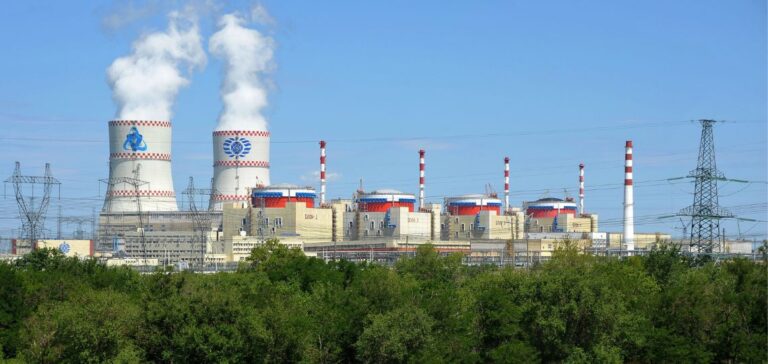The Russian security services (FSB) claimed on Thursday to have arrested “saboteurs” linked to the Ukrainian secret services who were planning attacks to disrupt the operation of Russian nuclear power plants.
“A sabotage group of the Ukrainian Foreign Intelligence Service (…) attempted to blow up about 30 power lines of the nuclear power plants in Leningrad and Kalinin” in the northwest of the country in early May, the FSB said in a statement. “According to the idea of the Ukrainian special services, this was to lead to the shutdown of nuclear reactors, disrupt the normal operation of nuclear power plants and cause significant damage to the economy and reputation of Russia,” the same source said.
The saboteurs “managed to blow up the pylon of a high-voltage line and to lay mines at the foot of four other high-voltage lines of the Leningrad nuclear power plant”, located in the eponymous region, about thirty kilometers from St. Petersburg, the FSB said. Explosive devices were also planted near seven towers of high-voltage lines connected to the Kalinin power plant, he continued.
Two “Ukrainian citizens, Alexander Maystruk, born in 1978 (…), and Eduard Usatenko, born in 1974” have been arrested in connection with these attacks and face up to 20 years in prison, the statement said. A search was launched for a third man, Yuri Kishchak, a Russian-Ukrainian born in 1963, according to the same source. “Two Russian accomplices of the saboteurs have also been identified and arrested,” according to the FSB, which accuses them in particular of having provided means of communication and vehicles with false license plates.
The Russian special services also seized 36.5 kilos of explosives and about 60 detonators from the “saboteurs”, according to the statement. An investigation for “sabotage” and “trafficking in explosives” has been opened.
In early May, just days before the celebrations of “Victory Day” over Nazi Germany in Russia, the country was rocked by a series of attacks and sabotage, including the derailment of two freight trains and a fire in an oil depot caused by a drone attack. The Russian authorities also reported in early May that a high-voltage line had been damaged in the Leningrad region, without providing details at the time.





















